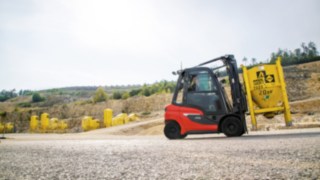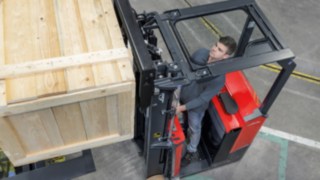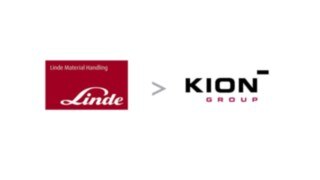Are your Operators Up to the Job?
Safety in operation
To ensure safe and efficient operation of materials handling equipment it is essential that the right personnel are selected to operate and maintain it and are thoroughly trained in their duties.
In many cases, materials handling equipment is as valuable as a luxury car and should be treated as such. Operators should be encouraged to adopt a culture of respect and treat equipment as if it was their own, taking responsibility for any costs caused by damage or misuse.
Damage can cause unnecessary expense and downtime if equipment is used by inexperienced operators, not only to the equipment itself, but to racking and loads and ultimately, the bottom line.
It is therefore imperative that operators are fully trained. Only those persons trained and authorised to drive should operate fork trucks, including those for whom it is a secondary function of their jobs: maintenance engineers, delivery drivers, for example. Every employer has a legal obligation to provide basic training which should comply with the Approved Code of Practice (ACOP) which states:
Employers should not allow anyone to operate, even on a very occasional basis, lift trucks within the scope of this ACOP who have not satisfactorily completed basic training and testing as described in this ACOP, except for those undergoing such training under adequate supervision.
Operator training should always include three stages:
Basic training: the basic skills and knowledge required to operate a lift truck safety and efficiently.
Specific job training: knowledge and understanding of the operating principles and controls of the lift truck to be used and how it will be used in their workplace.
Familiarisation training: applying what has been learnt, under normal working conditions, on the job.
Courses are designed to suit the needs of operators with varying degrees of experience. Other options include a conversion course (for the experienced operator when changing to another type of truck) and programmes for instructors and supervisors.
The Health and Safety at Work Act Provision and Safe Use of Work Equipment Regulations (PUWER 98) and Lifting Operations and Lifting Equipment Regulations (LOLER 98) - or their equivalent in other countries - must be complied with at all times to ensure that operators and other personnel in the area in which a lift truck is working are not subject to any risks.
Once fully trained, at the beginning of every shift, the operator should check the equipment in accordance with the handbook. Any defects should be reported immediately. Checks may include: damage to tyres, lights and fluid levels.

It’s also important to remember the following rules when operating lift trucks:
- Lift trucks should always be used within their rated capacity at all times.
- When unusual or bulky loads have to be handled, care is essential to allow for the dynamic effects of exceptional size – in this case, you should always refer to the manufacturer.
- No person must be lifted on the forks or on a pallet. Only purpose-built equipment should be used.
- All users of industrial trucks should ensure that preventative maintenance is carried out as recommended by the manufacturer. Truck safety depends on regular and thorough maintenance.

John Thompson
Training Manager
Mobile: 07721745105
Email: john.thompson@linde-mh.co.uk
